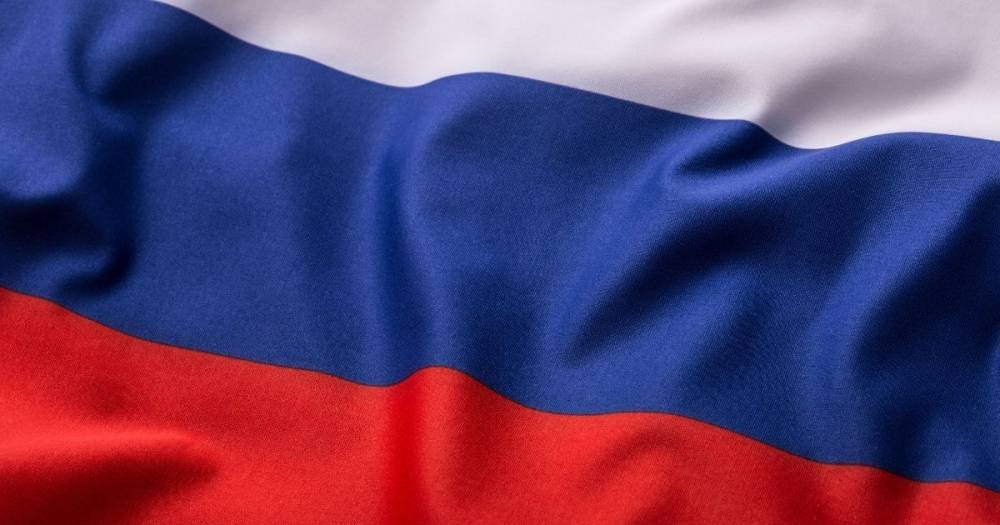In digital marketing, Russian SEO is a critical strategy for brands to reach broader audiences in Russian-speaking regions. As Russian is one of the most spoken languages in the world, SEO efforts in this language provide a significant advantage in reaching potential customers. Particularly, the search engine Yandex, which is popular in Russia, is a platform that requires a different approach to SEO strategies.
Russian SEO work must be conducted in accordance with the grammatical structure, word usage, and cultural nuances of the language. These efforts involve not only keyword optimization but also adapting to local search engine algorithms. The rich and complex structure of the Russian language requires careful analysis and planning for accurate content production.
A successful Russian SEO strategy is not limited to gaining rankings; it also increases brand awareness and builds trust with the target audience. Adapting content to the Russian culture plays a critical role in attracting local users. Therefore, working with professionals who are skilled in the nuances of the language is key to gaining a competitive advantage in the digital world.
Russian Keyword Research and Selection
The foundation of a successful Russian SEO strategy is proper keyword research and selection. Russian is distinguished by its rich vocabulary and complex grammatical structure. Therefore, when selecting keywords, attention must be paid to the language’s grammatical features, user behavior, and regional differences. Particularly, search engine algorithms, such as those of Yandex, which is widely used in Russia, differ from Google’s, requiring a specialized approach.
When conducting keyword research in Russian SEO, the terms used by the target audience must be thoroughly analyzed. For instance, different words with the same meaning may vary regionally. Moreover, when identifying high search volume keywords, the competition level should also be considered. Understanding users’ search intent and selecting appropriate keywords is of critical importance in this process.
Once the right keywords are selected, the content must be optimized around these keywords. However, this optimization should ensure that the keywords are naturally integrated into the text. Attempts to increase keyword density could negatively impact user experience and lead to search engine penalties.
Analysis of Local Competitors and Differentiation
To gain a competitive advantage in the digital world, analyzing local competitors is a strategic necessity. Especially in Russian SEO strategies, identifying the strengths and weaknesses of local competitors enables businesses to highlight their points of differentiation. This process is critical for understanding market dynamics and providing a unique value proposition compared to competitors.
When working on Russian SEO, it’s important to analyze which keywords local competitors are focusing on and how they optimize their content. Tools provided by Yandex and other SEO analysis platforms can be used for this. By examining the language, content strategy, and technical optimization methods of competitors, gaps can be identified.
In a differentiation strategy, the brand’s strengths should be highlighted. For example, creating content tailored to the target audience, communicating in a style that suits the local culture, and offering innovative solutions to enhance user experience will help businesses stand out. Additionally, demonstrating a strong presence in areas where competitors are lacking underscores the uniqueness of the brand.
Russian URL Structure and Its Impact on SEO
The URL structure of websites plays a critical role in search engine optimization. For Russian SEO efforts, designing the URL structure correctly is a significant factor in achieving higher rankings on search engines like Yandex and Google. In Russian-speaking markets, URLs must be clear, correct, and keyword-focused.
During Russian SEO work, caution must be exercised regarding the use of the Cyrillic alphabet in URLs. Since Yandex supports Cyrillic letters, structuring URLs in the same way users search can provide an advantage. However, for international audiences, creating URLs with the Latin alphabet presents a more universal approach. These preferences should be determined based on the habits of the target audience and the search engine’s algorithm.
Short, descriptive, and keyword-inclusive URLs positively impact both user experience and search engine page rankings. For example, having targeted keywords in the URL for product- or service-focused content increases page visibility. However, the excessive use of keywords should be avoided, as it may be perceived as spam.
Optimizing Meta Tags for Russian
In digital marketing strategies, meta tags directly impact the performance of websites in search engines. In Russian SEO work, properly optimizing meta tags is crucial for increasing visibility in search engines like Yandex and Google.
Meta titles and descriptions form the first impression for users regarding page content. Therefore, when preparing meta tags in Russian, fluent and engaging expressions should be used while adhering to the grammatical rules of the language. Including keywords in meta titles helps search engines better understand the relevant content. However, keyword density should not be excessive.
During Russian SEO work, attention must be paid to the length of meta tags. Meta titles should generally not exceed 50-60 characters, while meta descriptions should be limited to 150-160 characters. User-friendly and original meta descriptions can enhance click-through rates, positively impacting site traffic.
Grammar and Spelling Rules in Russian Content
In digital content creation, adhering to grammar and spelling rules is one of the key factors that define professionalism and reliability. In terms of Russian SEO strategies, correct language use directly affects both user experience and search engine performance.
Russian grammar is known for its complexity and rigidity. Therefore, attention to detail during content creation is necessary. Particularly, proper usage of stress, sentence structure, and punctuation marks strengthens the meaning of the content. Incorrectly used words or missing punctuation marks can make the text appear unprofessional.
In Russian SEO work, it is also important to use keywords with the correct grammatical endings. Misspelled words or grammatical errors can lead to search engines misunderstanding the page and cause a drop in rankings. Additionally, ensuring that content is aligned with the language and culture of the target audience facilitates building a trustworthy brand image.
Heading Tags and Targeting Strategies
Heading tags (H1, H2, H3, etc.) play a significant role in structuring web pages effectively for both users and search engines. In Russian SEO work, optimizing heading tags organizes the page hierarchy and provides a structure that aligns with search engine algorithms.
Heading tags should clearly convey the core message of the content. The H1 tag forms the main title of the page, while subheadings (H2, H3) break the content into sections, enhancing readability. When conducting Russian SEO work, it is crucial to use target keywords in the heading tags correctly and naturally. However, this usage should not be excessive, as search engines may interpret it negatively.
Strategic use of heading tags provides advantages not only in terms of SEO but also for user experience. Users can quickly scan the page content and easily access the information they need through the headings. This increases the time spent on the site and generates a positive signal for ranking algorithms.
In the context of Russian SEO, properly structuring heading tags and ensuring they align with keywords is indispensable for a successful digital marketing strategy.
The Impact of Russian Content Length on SEO Performance
Content length is one of the important factors that directly affect SEO performance. In Russian SEO work, ensuring that content is of sufficient length allows search engines to evaluate pages better. However, length alone is not enough; content must engage the user with valuable information and meet the quality content criteria as perceived by search engines.
When creating content in Russian, properly written texts of adequate length attract users’ attention and encourage them to stay on the page longer. Search engines take into account how much time users spend on content, which can affect ranking factors. Very short content often ranks lower because it does not provide in-depth information.
In Russian SEO work, content between 1000-2000 words is generally considered an ideal length. This length provides valuable information to the user and demonstrates to search engines that the content is comprehensive. When combined with quality, content length forms an effective SEO strategy.
Using Yandex Webmaster Tools and Its Benefits
Yandex Webmaster Tools is a powerful tool offered by Yandex, Russia’s largest search engine, for webmasters. For those working on Russian SEO, this tool offers significant advantages in monitoring site performance, fixing errors, and optimizing SEO strategies.
Yandex Webmaster Tools provides site owners with detailed information about the indexing status of their sites. It can also detect technical errors on the site and provide suggestions for corrections. This is an important step in Russian SEO, as pages that are not indexed well by search engines can lead to ranking losses.
Yandex also provides search query data to evaluate your site’s performance in organic search results. These data show which keywords are bringing users to your site and which pages are popular. This allows you to conduct more targeted and effective Russian SEO work.
Applying Local SEO Strategies in the Russian Market
Local SEO is a critical digital marketing strategy for businesses operating in a specific geographic area. In the context of Russian SEO, correctly applying local SEO strategies can lead to success in competitive environments like the Russian market. These strategies help businesses become more visible in local search engine results.
The foundation of local SEO is content optimized for geographic locations. Using local keywords and targeting specific regions is essential for businesses targeting a particular area. Creating pages for each region and optimizing them with location-based terms increases the chances of ranking high in local search results.
Additionally, local SEO includes tactics like creating local business profiles, getting listed in local directories, and acquiring local backlinks. Positive reviews and ratings also play a role in local SEO rankings.
Russian Backlink Acquisition Strategies
In Russian SEO work, acquiring backlinks is a critical strategy to improve search engine rankings. Creating effective backlink strategies in the Russian market requires obtaining links from the right sources. Backlinks from local and quality sites increase your site’s authority and visibility.
The first step in a successful Russian SEO strategy is to acquire backlinks from relevant, locally focused sites that align with your target audience. Trusted blogs, news sites, and forums that produce content in Russian are valuable backlink sources for your site. Links from such sources also positively impact local SEO.
Additionally, guest posting within the scope of Russian SEO work is another effective way to gain backlinks by sharing content on other sites. This method not only increases your site’s authority but also allows you to directly reach your target audience.
Another important point to remember is that backlinks must be natural. Backlinks from spammy or low-quality sources can lead to penalties for your site. Therefore, it is essential to always focus on quality and organic backlink strategies.
The Impact of Website Speed on Russian SEO
Website speed plays a crucial role in the success of Russian SEO efforts. Fast-loading websites improve user experience and reduce the bounce rate of visitors. In Russian SEO strategies, having a high page load speed is positively evaluated by search engines as well, because search engines like Google and Yandex prefer user-friendly, fast websites.
The impact of website speed on SEO is particularly noticeable for mobile users. If a website with Russian content loads slowly, users may leave the site quickly, leading to ranking losses. Slow-loading pages not only negatively affect user experience but can also be harmful to Russian SEO.
Moreover, when working on Russian SEO, it is important to implement technical SEO improvements to boost website speed. Factors like image optimization, removing unnecessary code, and improving server speed directly impact site speed. By carefully working on these factors, you can increase your site’s speed and improve SEO performance.
Russian Image Optimization and SEO
In Russian SEO work, image optimization is a crucial step to improve search engine rankings and enhance user experience. While images support the content of websites, improper optimization can negatively affect the site’s speed. For Russian SEO, image optimization is crucial in terms of both speed and accessibility.
Proper image sizing is one of the most effective ways to improve site speed. During Russian SEO work, images should be high quality yet have a low file size. This helps speed up page loading times and reduces the bounce rate of users. Additionally, ensuring that image alt text is properly written helps search engines understand what the image is about.
Moreover, the file names of images should also be optimized for SEO. File names containing Russian keywords help search engines index the images better. For images to contribute to your site’s SEO, they should be used appropriately and tagged accordingly.





